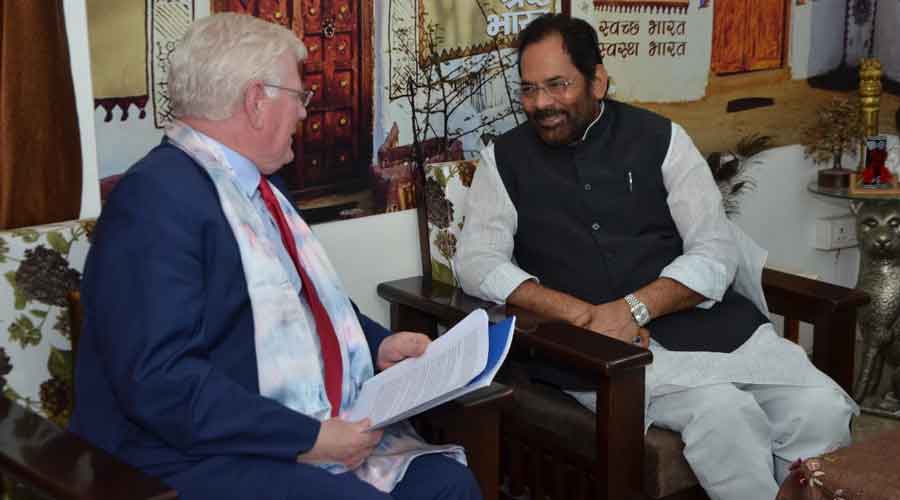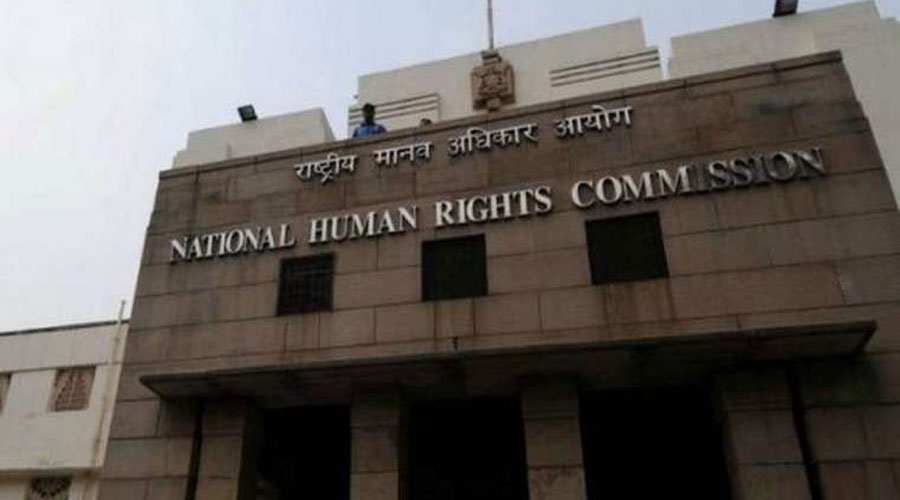The European Union Special Representative for Human Rights, Eamon Gilmore, raised with the Centre and the National Human Rights Commission issues of communal violence, condition of minorities, use of the sedition and anti-terrorism laws, and Jammu and Kashmir besides individual cases during meetings here this week.
His account of these meetings appeared at odds with what Union minority affairs minister Mukhtar Abbas Naqvi and the NHRC put out. On Thursday, Naqvi tweeted: “Apprised the delegation of the effective results of welfare programmes being carried out by @narendramodi Govt for socio-economic-educational empowerment of all sections of the society including the Minorities.”
Gilmore on Friday quoted this tweet and posted on Twitter: “#India: At meetings with Government, including @naqvimukhtar, Minister for Minorities, I discussed FCRA, use of sedition and anti-terrorism laws, detentions, the situation of minorities, communal violence, situation in Jammu Kashmir, and individual cases.”
He deployed the same strategy with the NHRC, which had tweeted: “NHRC, India Chairperson, Mr Justice Arun Mishra asks the visiting European Union delegation to work together to ameliorate the cause of human rights across the globe….”
The rights body had added in another tweet: “Besides a brief insight into the functioning of the NHRC, various aspects of human rights were also discussed including the issue of patent & affordability of life saving drugs and problems of Terrorism. #HumanRightsViolations.”
Gilmore quoted the NHRC tweet and said: “#India: Thank you @India_NHRC for this meeting, at which we also discussed the NHRC role in relation to FCRA, detentions, bail, sedition and anti-terrorism laws, UAPA, minorities and individual cases.”
Gilmore posted both tweets shortly before leaving the country and after attending the Raisina Dialogue. There was no further official word from either side on what took place at these meetings.
But minority affairs ministry sources claimed Naqvi had told Gilmore that no major communal riot had taken place in India since 2014 when Prime Minister Narendra Modi first took charge of the Union government.
Naqvi is said to have alleged a conspiracy to defame Modi and India and insisted that isolated criminal incidents were being given a communal colour.
This is not the first time Gilmore has commented on happenings in India. He had spoken out against the death of Jesuit priest Stan Swamy in prison last year.
The European Parliament (the directly elected legislative body of the EU) too had taken note of attacks on minorities in India earlier.
In 2020, the European Parliament had come close to voting on a resolution on the Citizenship Amendment Act and the National Register of Citizens, but India managed to dodge the bullet by leveraging a scheduled India-EU Summit.












